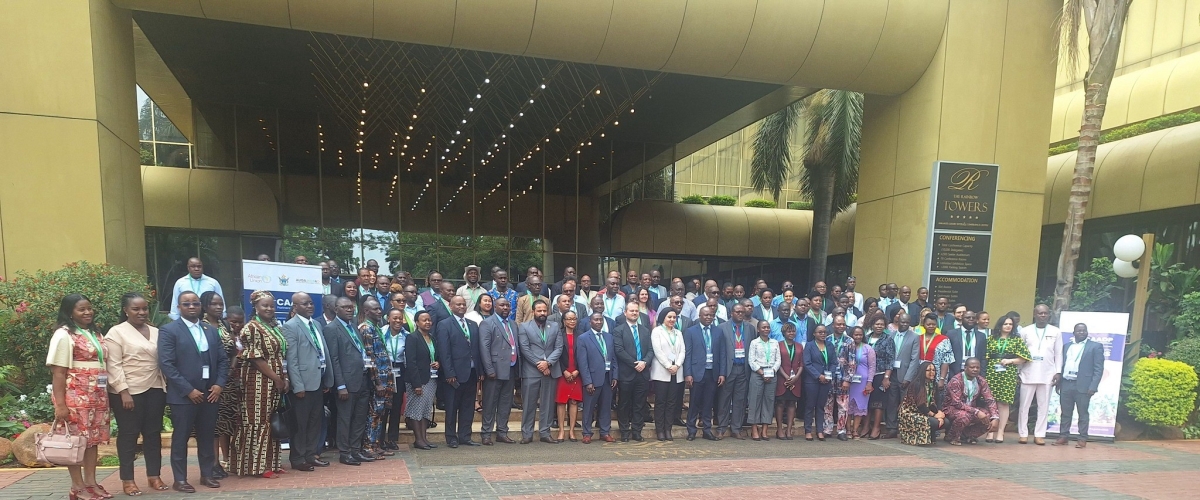
The 20th Comprehensive Africa Agriculture Development Programme Partnership Platform (CAADP-PP) was held in Harare, Zimbabwe, bringing together experts, policymakers, and agricultural stakeholders to advance Africa’s agricultural transformation. This year’s event, hosted by Zimbabwe on short notice, also commemorated the African Day of Food and Nutrition Security (ADFNS). Themed around "Two Decades of CAADP Agenda: Cultivating the Nexus of Nutrition, Agrifood Systems, and Education for Africa’s Growth," the gathering examined the progress since the Malabo Declaration in 2014 and discussed future priorities for a sustainable and food-secure Africa.
The CAADP-PP event included a dedicated Malabo policy learning session, marking nearly a decade of strides since the commitments. Zimbabwe’s Hon. Vangelis Haritatos, Deputy Minister of Lands, Agriculture, Fisheries, Water, and Rural Development, emphasized Africa’s need to become the “breadbasket of the world,” harnessing technology, strengthening partnerships, and building on past achievements. The Honorable Deputy Minister also called for inclusion, especially of women and youth, urging attendees to leave the event with actionable objectives for Africa’s agricultural prosperity. He emphasized the importance of Zimbabwe's commitment to the Post-Malabo process to enhance performance in the upcoming Biennial Review.
H.E. Ambassador Josefa Sacko, Commissioner for Agriculture, Rural Development, Blue Economy, and Sustainable Environment at the African Union Commission, emphasized the critical need for unified action in implementing the Africa Fertilizer and Soil Health Action Plan (AFSH-AP). She highlighted that the success of the AFSH-AP and the Soil Initiative for Africa (SIA) hinges on collaboration among African organizations, urging them to work together rather than in competition. Ambassador Sacko underscored the importance of collective commitment to achieve the 2024 Presidential Declaration on Africa Fertilizer and Soil Health objectives. This sets forth an ambitious ten-year plan to address the continent's soil and fertilizer challenges.
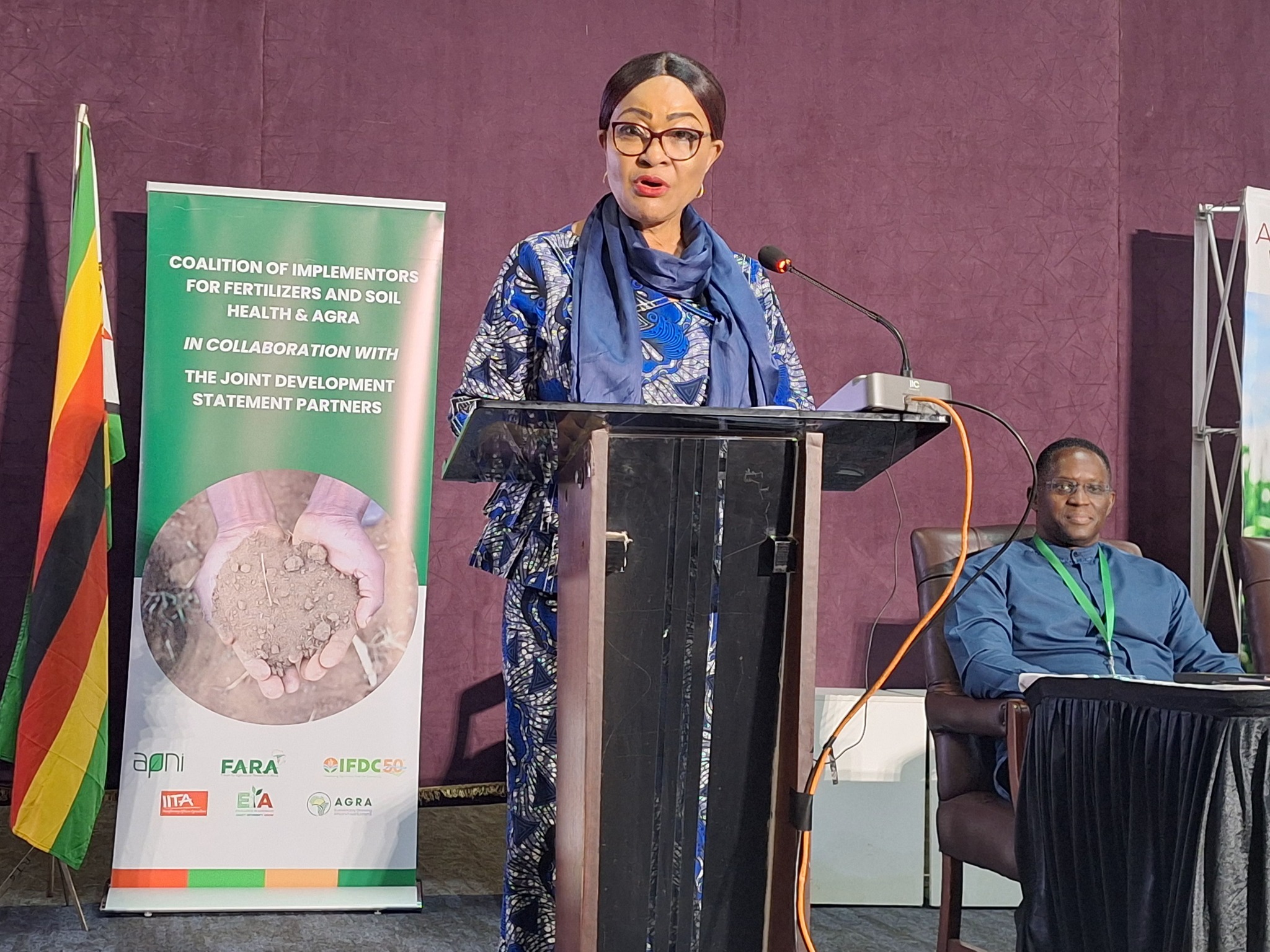
Dr. Godfrey Bahiigwa, Director of Agriculture and Rural Development at the African Union Commission (AUC), addressed the forum on tracking agricultural progress, particularly through the Biennial Review (BR) cycle. “Food security and hunger eradication are urgent priorities,” he noted, adding that recent conflicts, such as the ongoing war in Ukraine, have worsened food insecurity globally. Dr. Bahiigwa reiterated that CAADP implementation cycles guide efforts to enhance resilience in Africa’s food systems.
Representing non-state actors, Constance Okeke discussed their role as “the voices of the community,” advocating for policies and practices that reflect grassroots needs. Previously, non-state actors worked in isolation, but now, Ms. Okeke noted, they collaborate across regions such as SADC and ECOWAS to share insights from the grassroots, ensuring their integration into the CAADP process. This collective voice amplifies the concerns and ideas of farmers, youth, and other stakeholders in shaping agricultural policies.
Dr. John Ulimwengu from COMESA presented the Biennial Review findings, emphasizing the importance of institutional accountability. “Countries with strong accountability mechanisms see improved resource allocation to agriculture,” he explained. He urged African nations to create frameworks that support small-scale farmers with financial access and resilience-building strategies, noting that investments in agriculture yield progress in areas like irrigation and fertilizer use.
Addressing the nutrition aspect, Director Clemence Bwenje, from the Zimbabwe Ministry of Agriculture, who is also a CCARDESA Board Member, discussed the potential of “smart foods” like millet, which are drought-resistant, nutrient-dense, and improve soil health. “Smart foods are good for our farmers, our children, and everyone’s health,” he stated, advocating for their promotion across Africa to boost resilience. Elizabeth from the non-state actor delegation added that “nutrition is the quality of food,” urging Africans to innovate in food production to address malnutrition.
Mr. Kofi Kisiedu Acquaye YPARD Africa Coordinator, used a powerful metaphor to illustrate different approaches to action and impact. "A hen lays one egg a day and makes a lot of noise to announce it, while a turtle quietly lays many eggs at once," he observed. "Similarly, some achieve more with quiet determination, while others may do less but make a lot of noise about it." Koffi highlighted mixed feelings among the youth: some were hopeful about Africa’s agricultural future, and others were disappointed by unmet promises. His message called for focusing on meaningful action over mere words to drive real progress.
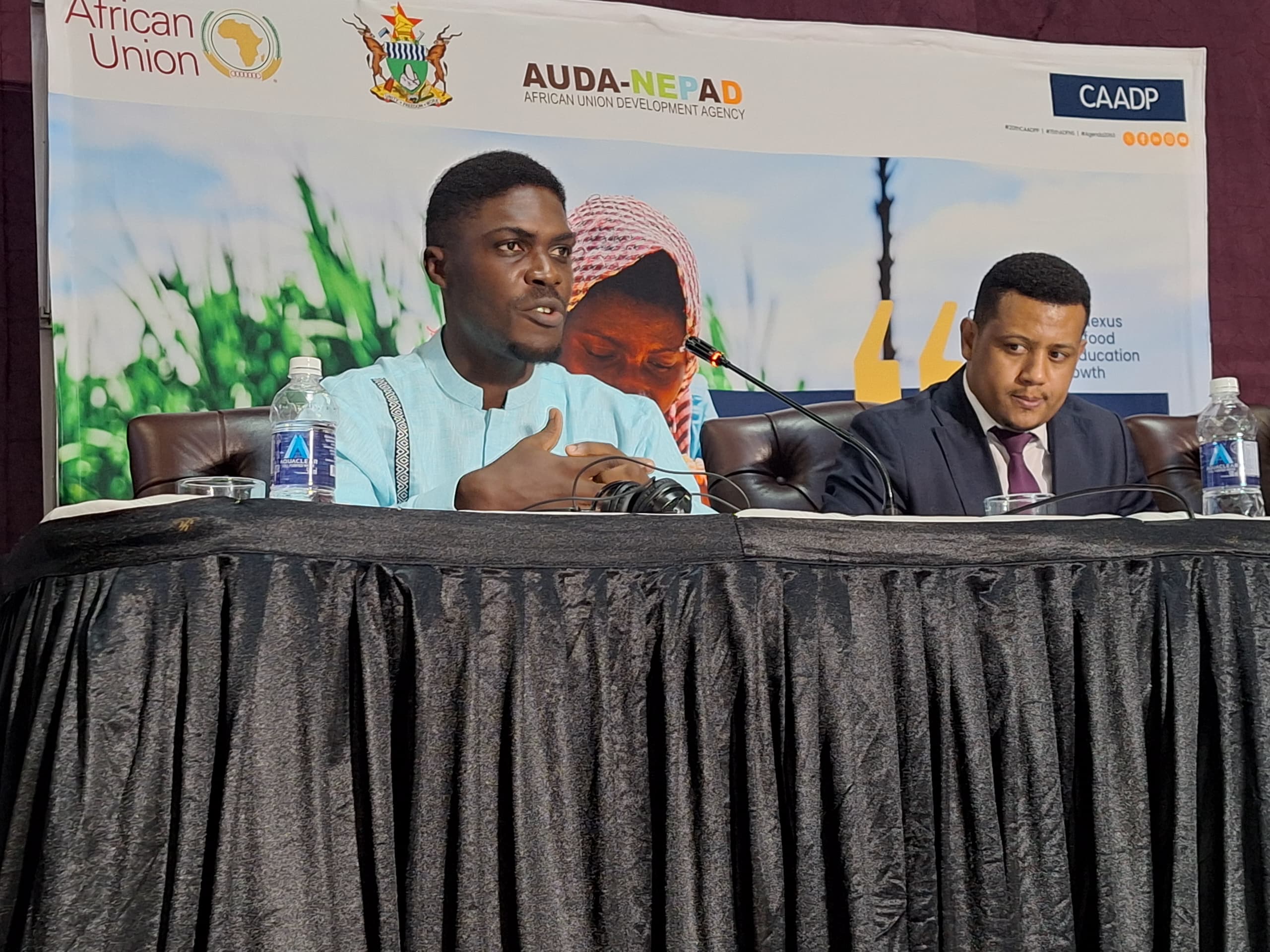
A youth Chef specialized in local food production, Ms. Lisulo from Zambia, urged the delegates to "Let food be the medicine, and not medicine be the food. " She emphasized the importance of nutrition and food security as fundamental to health and resilience. She also urged leaders to embrace their roles today rather than deferring action to tomorrow and posed a critical question: How can technology be harnessed now to advance these goals? His message underscored the urgency of innovative approaches and proactive leadership to secure Africa’s agricultural future.
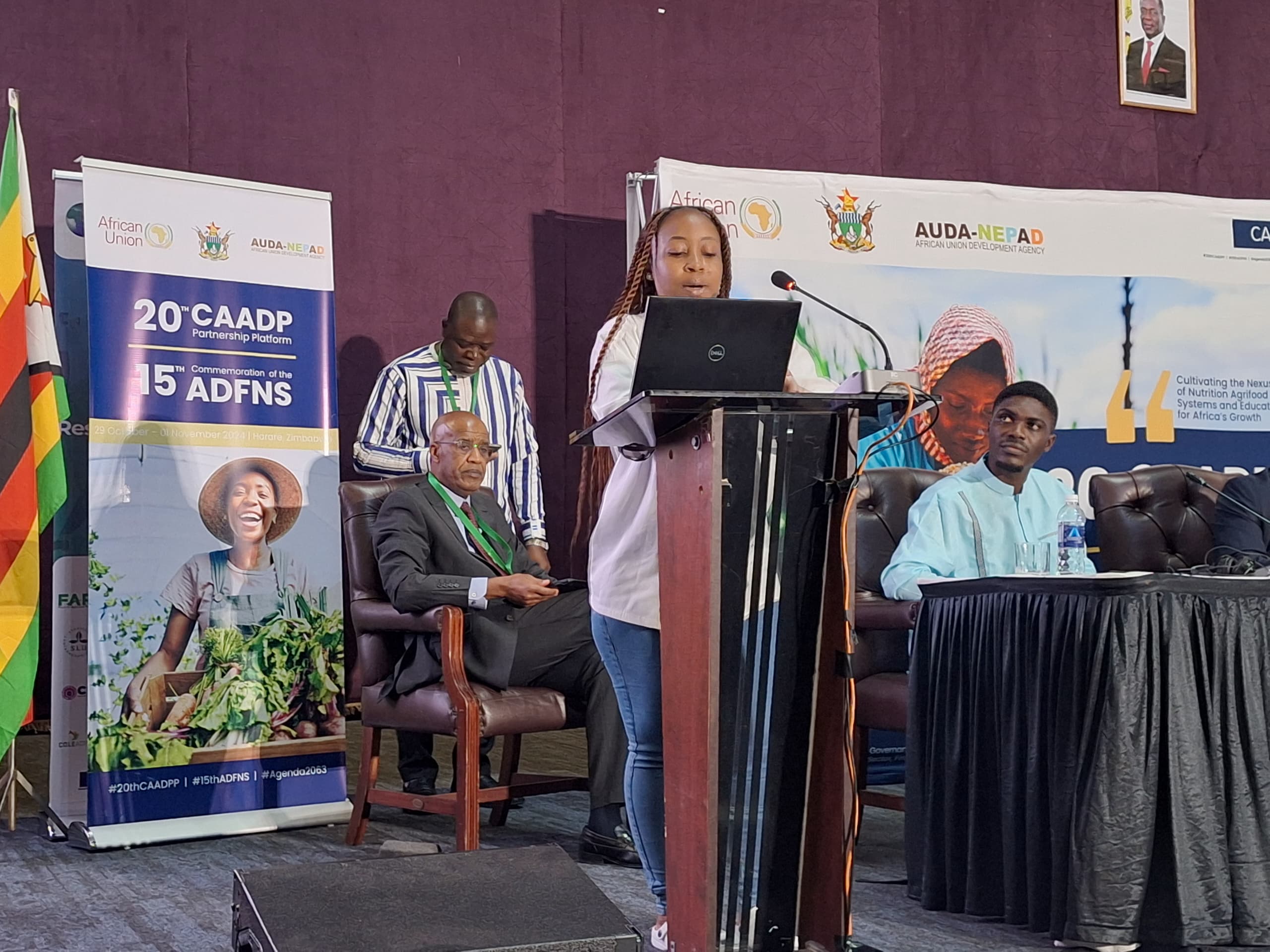
Throughout the CAADP-PP event, stakeholders highlighted the role of youth and technology in agricultural development. Dr. Hamady Diop, Post-Malabo Process Coordinator, emphasized the private sector’s role in supporting National Agriculture Investment Plans (NAIPs) and ensuring they are aligned with national budgets to create tangible outcomes. Prof. Richard Mkandawire spoke on “repurposing resources” to improve soil health, stressing the importance of technological investments to empower rural youth.
The CAADP-PP event underscored the commitment of African countries and partners to transform agriculture, not only to feed the continent but to drive economic growth and reduce poverty. Leaders encouraged attendees to integrate policy, innovation, and partnerships for sustainable food systems that include marginalized groups.
With a renewed call to action, the CAADP-PP reinforced its mission to eradicate hunger and malnutrition in Africa, aligning efforts with the AU’s vision for food and nutrition security by 2030. As Commissioner Sacko reminded the participants, “Africa has the power to feed itself—now we must ensure our efforts translate into tangible solutions.”
This year’s CAADP-PP was a powerful reminder that Africa’s agricultural future depends on collective effort, inclusive policies, and actionable commitments that uplift communities, foster resilience, and build a sustainable, food-secure continent.
On the sidelines of the CAADP-PP, CCARDESA Executive Director Prof. Cliff Dlamini, Mr. Simon Mukuze, CCARDESA Finance Manager, and Mrs. Bridget Kakuwa-Kasongamulilo, ICKM Officer, attended a Comprehensive Africa Agriculture Development Programme (CAADP) Symposium in Harare organised by the Zimbabwe Commercial Farmers Union (ZCFU) with a focus on the national implementation of the Malabo Declaration in pursuit of accelerated agricultural growth. The team engaged directly with local farmers at this event, graced by the Zimbabwe Deputy Minister of Lands, Agriculture, Fisheries, Water and Rural Development, Honourable Vangelis Haritatos. The Minister appealed to the private sector to engage with the government to explore investment partnerships across the whole value chain.
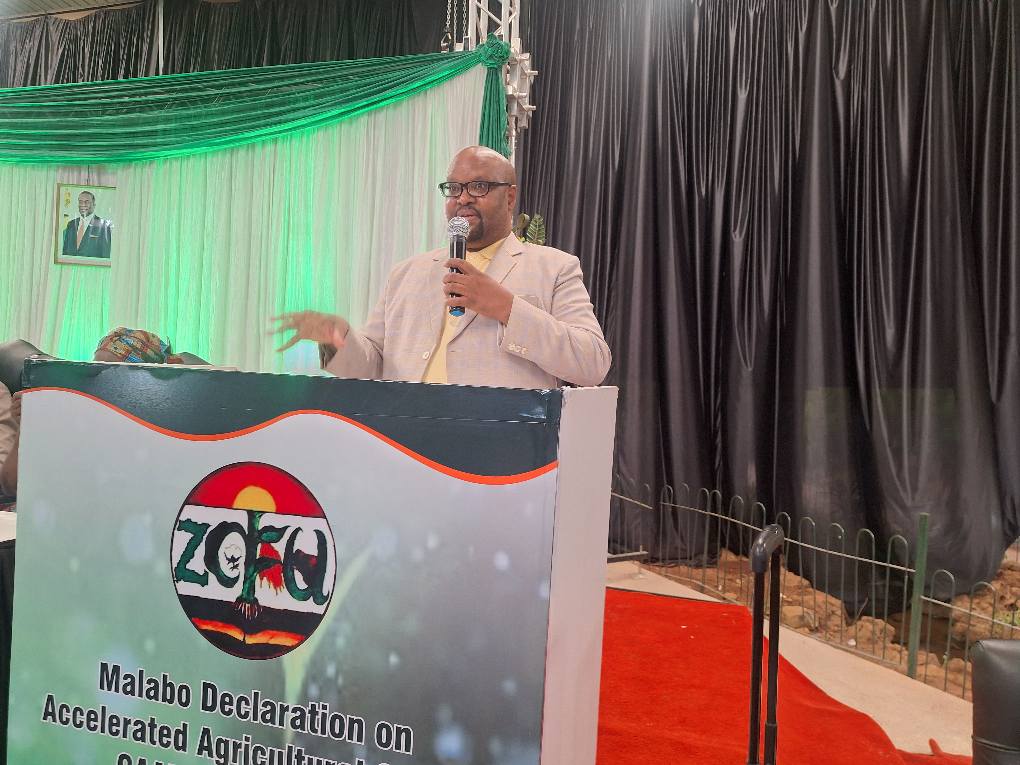
Prof. Dlamini emphasized CCARDESA's commitment to supporting farmers and highlighted the organization's role in enhancing agricultural development across the Southern African region. Prof. Dlamini underscored that CCARDESA is dedicated to serving farmers' needs, fostering innovation, and promoting sustainable agricultural practices. He encouraged farmers to view CCARDESA as a resource and partner.





